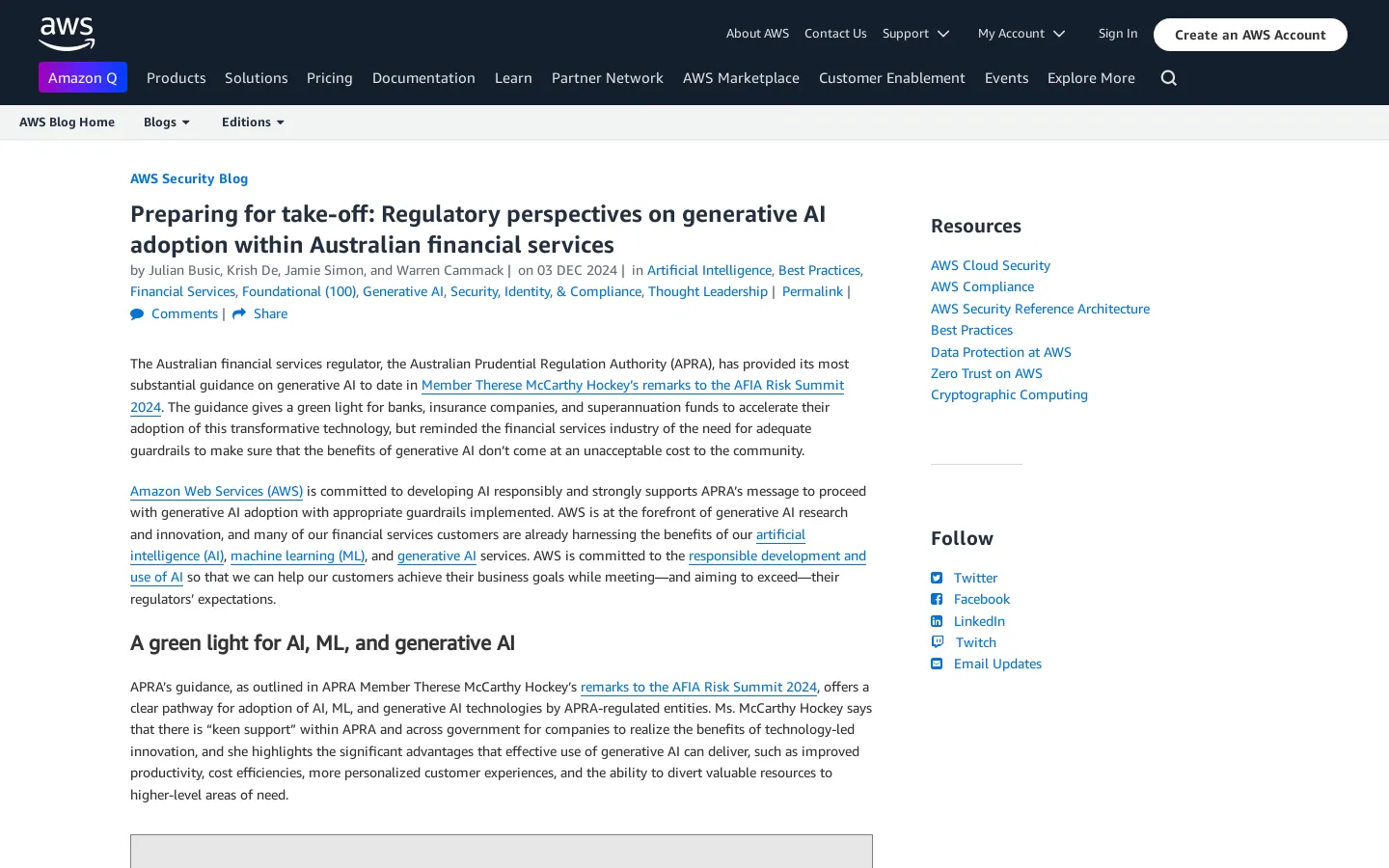
APRA Issues Guidance on Generative AI in Financial Services
/ 3 min read
Quick take - The Australian Prudential Regulation Authority (APRA) has released guidance to encourage the adoption of generative artificial intelligence in the financial services sector, highlighting the need for operational efficiency while emphasizing the importance of risk management and regulatory compliance.
Fast Facts
- APRA has released guidance to encourage the adoption of generative AI in the financial services sector, aiming to enhance operational efficiency and service delivery.
- The guidance emphasizes the importance of implementing robust risk management strategies to protect institutions and the broader community.
- Financial organizations are increasingly exploring advanced technologies to remain competitive and meet changing consumer expectations.
- APRA highlights the potential for generative AI to improve customer experiences and streamline processes, while also stressing the need for vigilance to maintain regulatory standards and consumer trust.
- The existing prudential framework is deemed suitable for integrating AI technologies, ensuring accountability and risk awareness as financial institutions innovate.
APRA Encourages Generative AI Adoption in Financial Services
The Australian Prudential Regulation Authority (APRA) has issued new guidance promoting the adoption of generative artificial intelligence (AI) within the financial services sector. This announcement, made by Member Therese McCarthy Hockey at the AFIA Risk Summit 2024, marks a significant step in integrating advanced technologies into banking, insurance, and superannuation industries.
Embracing Innovation with Caution
APRA’s guidance underscores the dual focus of embracing innovation while ensuring robust risk management. The authority encourages financial institutions to leverage generative AI to enhance operational efficiency and service delivery. However, it also emphasizes the importance of implementing adequate safeguards to protect both the institutions and the broader community.
This initiative comes at a time when financial organizations are increasingly exploring advanced technologies to remain competitive and meet evolving consumer expectations. By providing a structured framework, APRA aims to ensure that financial entities can harness AI’s benefits without compromising regulatory standards or consumer trust.
Potential Transformations in Financial Services
The implications of this guidance are profound. As financial services adopt generative AI, there is potential for improved customer experiences and streamlined processes. These advancements could lead to transformative changes across the industry. However, APRA’s emphasis on risk management serves as a reminder of the need for vigilance amidst rapidly evolving technology landscapes.
Amazon Web Services (AWS) echoes APRA’s balanced approach, supporting the message while emphasizing its commitment to responsible AI development. AWS aims to empower customers to achieve business objectives while adhering to regulatory expectations.
Ensuring Responsible Integration
APRA stresses the critical role of board oversight and robust risk management practices for organizations venturing into AI technologies. Fortunately, APRA believes that its existing prudential framework is well-suited to accommodate the increasing integration of artificial intelligence, machine learning, and generative AI by regulated entities.
This framework is designed to ensure that as financial institutions innovate and evolve, they do so with a strong foundation of accountability and risk awareness. By fostering innovation responsibly, APRA seeks to maintain consumer trust and uphold regulatory standards in an era defined by technological advancement.
As financial institutions navigate this new landscape, they must prioritize developing comprehensive risk management strategies alongside their AI initiatives. This approach will be crucial in ensuring that technological advancements contribute positively to both organizational goals and community safety.



